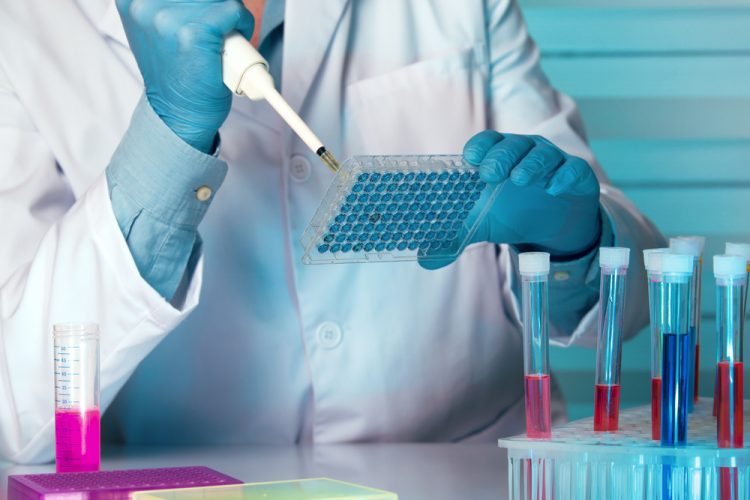High-throughput screening reveals 21 drugs with activity against COVID-19
Posted: 28 July 2020 | Victoria Rees (Drug Target Review) | No comments yet
After screening 12,000 existing drugs, scientists have identified 21 which prevent the replication of SARS-CoV-2 in concentrations safe for patients.


A study authored by a global team of scientists has identified 21 existing drugs that safely prevent the replication of SARS-CoV-2, the virus that causes COVID-19.
Led by Professor Sumit Chanda at Sanford Burnham Prebys Medical Discovery Institute, US, the scientists analysed one of the world’s largest collections of known drugs for their ability to block the replication of SARS-CoV-2.
The drugs were identified by high-throughput screening of more than 12,000 drugs from the ReFRAME drug repurposing collection – the most comprehensive drug repurposing collection of compounds that have been approved by the US Food and Drug Administration (FDA) for other diseases or that have been tested extensively for human safety.
The team reported 100 molecules with confirmed antiviral activity in laboratory tests. Of these, 21 drugs were determined to be effective at concentrations that could be safely achieved in patients. Notably, four of these compounds were found to work synergistically with remdesivir, a current standard-of-care treatment for COVID-19.
Of the 21 drugs that were effective at blocking viral replication, the scientists found:
- Thirteen have previously entered clinical trials for other indications and are effective at concentrations, or doses, that could potentially be safely achieved in COVID-19 patients
- Two are already US Food and Drug Administration (FDA) approved: astemizole (allergies), clofazamine (leprosy) and remdesivir has received emergency use authorisation from the agency (COVID-19)
- Four worked synergistically with remdesivir, including the chloroquine derivative hanfangchin A (tetrandrine), an antimalarial drug that has reached Phase III clinical trials.
“Remdesivir has proven successful at shortening the recovery time for patients in the hospital, but the drug does not work for everyone who receives it. That’s not good enough,” said Chanda, senior author of the study. “As infection rates continue to rise in America and around the world, the urgency remains to find affordable, effective and readily available drugs that can complement the use of remdesivir, as well as drugs that could be given prophylactically or at the first sign of infection on an outpatient basis.”
The researchers are currently testing all 21 compounds in small animal models and lung organoids. If these studies are favourable, the team will approach the FDA to discuss a clinical trial(s) evaluating the drugs as treatments for COVID-19.
“Based on our current analysis, clofazimine, hanfangchin A, apilimod and ONO 5334 represent the best near-term options for an effective COVID-19 treatment,” said Chanda. “While some of these drugs are currently in clinical trials for COVID-19, we believe it is important to pursue additional drug candidates so we have multiple therapeutic options if SARS-CoV-2 becomes drug resistant.”
The findings are published in Nature.
Related topics
Drug Development, High Throughput Screening (HTS), Research & Development, Screening, Therapeutics
Related conditions
Coronavirus, Covid-19
Related organisations
Sanford Burnham Prebys Medical Discovery Institute
Related people
Professor Sumit Chanda



